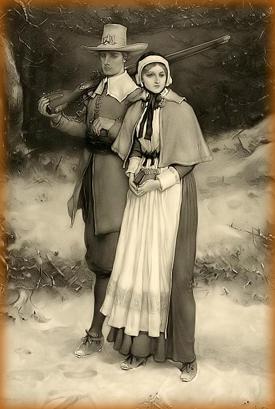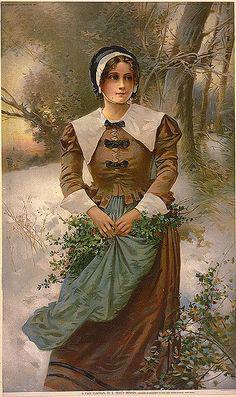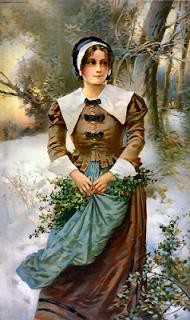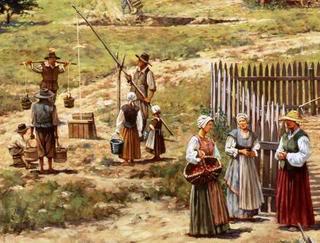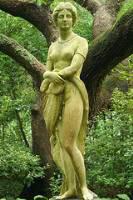Pilgrim Mothers? There is so much made of the Pilgrim Fathers of Plymouth Colony, but what about the Pilgrim Mothers? Those brave women are only mentioned in conjunction with their husbands and their children. Their lives are seen only in brief glimpses. The women themselves are almost invisible. Plymouth Colony Life The Pilgrims continued to follow the laws of England concerning females, marriage and the family. They brought with them traditional attitudes about the proper status and roles of women. Women were considered to be the “weaker vessels,” not as strong physically or mentally as men, and less emotionally stable.
